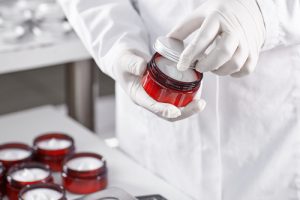
U.S. Reps. Brian Fitzpatrick (R-PA), John Katko (R-NY), and Sen. Susan Collins (R-ME) this month introduced bipartisan legislation that would ban the use of per- and polyfluoroalkyl substances (PFAS) in cosmetics.
The NO PFAS in Cosmetics Act, H.R. 3990/S. 2047, would specifically require the U.S. Food and Drug Administration to ban the use of PFAS in cosmetic products within 270 days of the bill’s enactment.
“Americans deserve access to personal care products free from harmful toxins such as PFAS,” said Rep. Fitzpatrick, co-chair of the bipartisan Congressional PFAS Task Force. “The more we learn about these chemicals, the clearer the danger becomes. We must act swiftly to stop the use of these harmful chemicals and protect consumers with the bipartisan No PFAS in Cosmetics Act.”
Rep. Fitzpatrick’s office cited a recent study from the Green Science Policy Institute that found traces of PFAS in 56 percent of the 231 cosmetic products they tested.
Scott Faber, senior vice president for government affairs at the Environmental Working Group, noted that PFAS have been linked to serious health problems, including cancer and harm to the reproductive and immune systems.
“PFAS chemicals showing up in our soil, air, and drinking water systems pose serious threats to our public health,” Rep. Katko said. “I’m glad to join my colleagues on both sides of the aisle in introducing the No PFAS in Cosmetics Act to protect consumers and stop these toxic chemicals before they reach our environment.”
Reps. Fitzpatrick and Katko were joined in introducing the legislation in the U.S. House on June 17 by bill sponsor U.S. Rep. Debbie Dingell (D-MI). Sen. Collins sponsored the bill in the U.S. Senate along with U.S. Sen. Richard Blumenthal (D-CT) on June 14.
“Unfortunately, Maine has experienced considerable PFAS contamination, which has not only threatened our water supply, but adversely affected the livelihoods of farmers. In addition to these agricultural and water supply contaminations, we now also know that PFAS appear in products across the spectrum—including cosmetics,” Sen. Collins said.



